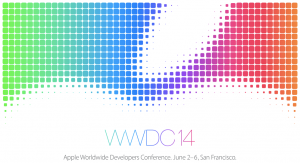 Once a year, Apple kicks off its World Wide Developer Conference with a keynote presentation, such as the one coming up on Monday, which I’ll be covering for Technologizer. Many people seem to think they’re famous for involving Apple dazzling consumers with an array of new products, to the rapturous approval of everybody involved.
Once a year, Apple kicks off its World Wide Developer Conference with a keynote presentation, such as the one coming up on Monday, which I’ll be covering for Technologizer. Many people seem to think they’re famous for involving Apple dazzling consumers with an array of new products, to the rapturous approval of everybody involved.
Which is weird, because that’s not the point at all.
Sure, consumers are watching, and Apple hopes that they’re dazzled. But WWDC keynotes are usually the least gadget-centric events which Apple holds, and even though people who covet new Apple products pay close attention, they’re not the primary audience.
Here’s the truth about WWDC keynotes:
- The fact that they’re part of a conference devoted to informing developers about Apple’s platforms means that the emphasis will be on software–particularly operating systems–and the odds of a radically new hardware product being announced are just about nil;
- Since epoch-shifting hardware is out of the picture, any devices which do get announced are, by definition, only incrementally superior to their predecessors;
- No matter how newsy the keynote is, some people–especially ones who were hoping for something extremely specific which didn’t get announced–will deem it a snoozefest;
- There’s a very good chance that Apple’s stock will fall in the wake of the keynote, presumably indicating that Wall Steeet was not instantly impressed.
Now, I’m a WWDC keynote fan myself–there’s nothing more important to hardware than the software which it runs, so the focus on operating systems and apps makes these events more interesting to me, not less so. But as we gird ourselves for Monday, it might help to calibrate expectations if we review the last ten years of WWDC keynotes.
So without any further ado…
2004
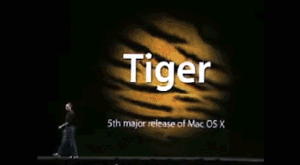 Keynote date: June 28; full video here
Keynote date: June 28; full video here
Major news: OS X 10.4 Tiger, iTunes 4.9, new Cinema Displays
Snap judgment: “A totally boring keynote. A few interesting items in Tiger — but otherwise, Apple continues to disappoint in 2004.”–Macrumors forum member Numediaman
Impact on Apple stock price: Down .03 to $16.25
2005
 Keynote date: June 6; full video here
Keynote date: June 6; full video here
Major news: An unusual WWDC which focused–after the opening stats and updates–on one gigantic piece of news, the Mac’s move from PowerPC processors to Intel ones
Snap judgment: “We believe the move is risky for Apple. By switching to a more mass market processor, Apple likely risks diluting its value proposition as it has less control over the product road map.”–Prudential Equity Group analyst Steven Fortuna
Impact on Apple stock price: Down .84 percent to $37.95
2006
 Keynote date: August 7; full video here
Keynote date: August 7; full video here
Major news: Introduction of the Mac Pro desktop; preview of OS X 10.5 Leopard
Snap judgment: “The sneak preview of Leopard was underwhelming. For what seemed an interminable time, Jobs and Co. showed off one yawn after another. There’s no way I can get excited about virtual desktops or a new service that turns highlighted text into a “to do” item. Oooo.”–Leander Kahney, Wired
Impact on Apple stock price: Down 3.6 percent to $64.78
2007
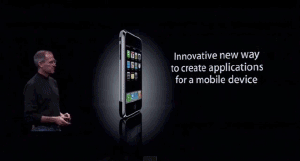 Keynote date: June 11; full video here
Keynote date: June 11; full video here
Major news: Web “apps” for the iPhone (which didn’t yet offer true third-party apps); further preview of Leopard, which was being delayed; Safari browser for Windows
Snap judgment: “Unless you’re particularly into games or operating system software, today’s WWDC announcements were probably a bit of a snooze-fest. I don’t know about you, but I’m a hardware guy. Hardware is tangible, tactile and there’s an emotional component to hardware that I don’t get from software – but that’s me.”–Jason D. O’Grady, ZDNet
Impact on Apple stock price: Up .16 percent to $120.38
2008
 Keynote date: June 9; full video here
Keynote date: June 9; full video here
Major news: iPhone 3G; OS 10.6 Snow Leopard; MobileMe service; more details on the iPhone OS SDK and App Store, which had been announced at an event in March
Snap judgment: “If you expected startling news to come out of Monday’s keynote for Apple’s World-Wide Developers Conference (WWDC)–headlined, of course, by Steve Jobs–you went away unstartled and disappointed.”–Harry McCracken (hey, that’s me!), PC World
Impact on Apple stock price: Up 2.2 percent to $185.64
2009
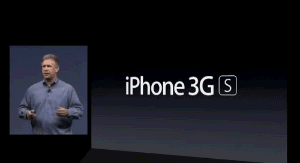 Keynote date: June 8; full video here
Keynote date: June 8; full video here
Major news: iPhone 3GS; demos of iPhone OS 3.0 and Snow Leopard, which had already been shown; new 13″ MacBook Pro
Snap judgment: “Wow, there’s two hours of my life that I won’t get back anytime soon. Today’s epic bore of a keynote address at the Apple Worldwide Developers Conference signals the problem that Steve Jobs has created as the designated showman/face of Apple. Jobs’ rampant control issues and megalomania are so acute that everyone else who works for him sounds like they’ve never had to address the family dinner table, much less the assembled throng of thousands of Apple developers and the untold millions of fanboys refreshing liveblogs around the world.”–David Lidsky (commenting on a keynote hosted by Phil Schiller during Steve Jobs’s medical leave), Fast Company
Impact on Apple stock price: Down .79 percent to $142.72
2010
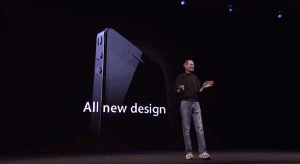 Keynote date: June 7; full video here
Keynote date: June 7; full video here
Major news: iPhone 4 (the model whose thunder Gizmodo had stolen in April) ; iPhone OS being renamed iOS; FaceTime; iMovie for iOS
Snap judgment: “But despite all of [Steve Jobs’] showmanship and a very impressive new product, the keynote wasn’t quite the game changer that I expected. I don’t mean to say I found the iPhone 4 to be disappointing — it will be incredibly successful, and many of my friends are champing at the bit to get one. But I expected to walk out of San Francisco’s Moscone Center yesterday longing for the next iPhone despite my current allegiance to Android. That didn’t happen.”–Jason Kincaid of TechCrunch, giving the closest thing I could find to a negative spin on a keynote that was unusually well received
Impact on Apple stock price: Down .64 percent to $249.33
2011
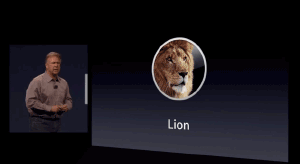 Keynote date: June 6; full video here
Keynote date: June 6; full video here
Major news: iOS 5; OS X 10.7 Lion; iCloud
Snap judgment: “Probably spoiled by Apple’s way of bringing new and innovative ideas to the table each year, I was hoping for something revolutionary, something that would rock my iOS-loving, iPhone-hugging world. Sadly all I saw were minor changes, most of which were already available one way or another.”–Johnny, GSMArena
Impact on Apple stock price: Down 1.8 percent to $332.04
2012
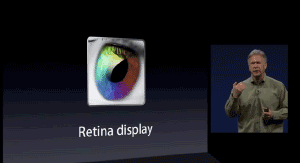 Keynote date: June 11; full video here
Keynote date: June 11; full video here
Major news: iOS 6; OS X 10.8 Mountain Lion; 15″ MacBook Pro with Retina display; MacBook Airs with new processors
Snap judgment: “Maybe Steve Jobs set the innovation bar too high, but Apple users have become accustomed to stunning new product announcements and introductions. That didn’t happen at WWDC12. Instead, business users were treated to a nicely redesigned MacBook Pro and promises of great new products (Mountain Lion and iOS 6) to come.”–Erik Eckel, TechRepublic
Impact on Apple stock price: Up .87 percent to $576.16
2013
 Keynote date: June 10; full video here
Keynote date: June 10; full video here
Major news: iOS 7; iOS 10.9 Mavericks; preview of all-new Mac Pro; updated MacBook Airs; iTunes Radio
Snap judgment: “To be direct, Apple had a shot at regaining its ‘mojo’ just by announcing the next amazing new product to come down the road today. Hopes of an iWatch, iTV, and a low-priced iPhone for the emerging markets, were dashed in one unimpressive display of face lifting, rather than innovation.”–Regarded Solutions, Seeking Alpha
Impact on Apple stock price: Down .29 percent to $437.60
With all of the above in mind, here are my official WWDC 2014 predictions:
- Apple is going to focus on software;
- Some people will complain about the fact that Apple focused on hardware, and criticize it for not unveiling something like an iWatch;
- Whatever Apple does announce won’t result in a massive run-up on its stock.
And those are the only predictions I’m making. See you on Monday: I’m going to live-tweet the event as it happens, and then follow up here with further thoughts after it’s over and all is known.














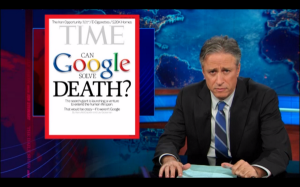
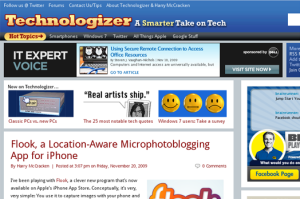
 Back on February 9th, I
Back on February 9th, I